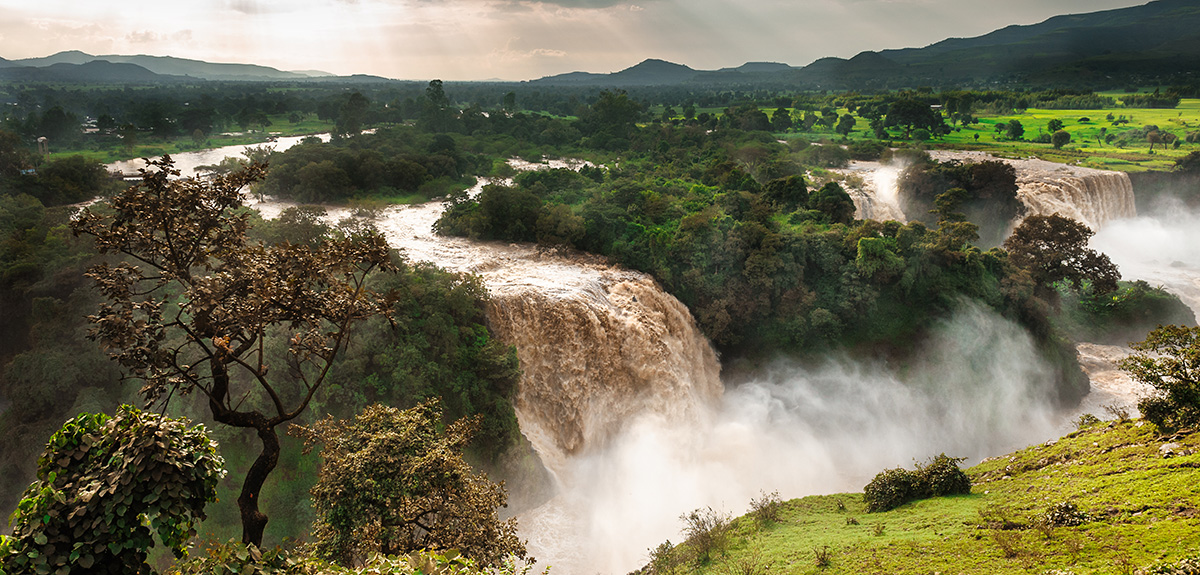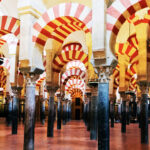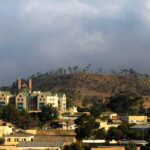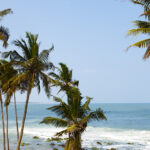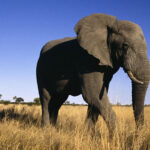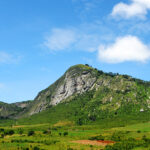Teaching Jobs in Ethiopia
ESL teachers will find many opportunities to teach in Ethiopia because English classes are mandated in secondary school. However, schools may not be located in an urban center, because the country’s population is spread throughout more rural towns and only a little more than 10% live in bigger cities. A typical workweek for teachers in Ethiopia can be anywhere between 15 – 25 classroom hours per week.

Options for teaching in Ethiopia
There is no shortage of teaching jobs in Ethiopia, especially volunteer positions. Teachers stationed in more rural areas will have a lot of flexibility when it comes to classroom curriculum, so teachers looking to exercise their creative muscles will enjoy these positions.
Paid ESL and certified teaching positions are also readily available. Most of the paid teaching positions are located in the urban centers in Ethiopia, like the capital, Addis Ababa. As mentioned earlier, fluent English-speaking teachers are in demand in Ethiopia.
Peak hiring time for teachers in Ethiopia starts at the beginning of summer (July) and runs until early September, so check out our job board between these times for positions of interest.
Salary and benefits for teaching jobs in Ethiopia
The salary for teaching in Ethiopia can be quite low by North American standards, sometimes around $250 USD per month. However, the cost of living is so low, especially in more rural towns, so this is still considered a completely livable salary, and teachers may even still be able to save a little of their monthly income. Accommodations are usually arranged and paid for by the school, so this should also help cut down on the cost of living.

What you need to teach in Ethiopia
Qualifications for teaching jobs in Ethiopia
As far as qualifications go, teachers in Ethiopia aren’t required to have any specific certification or qualifications, but teachers that have better qualifications will automatically have a higher chance of securing a teaching position. Completing a TEFL certification can help teachers who may be teaching English to learners with a different native language for the first time.
Visas
Teachers interested in heading to Ethiopia will require a work visa as well as a sponsor letter, so be sure to secure this from your employer before you head off.

Living in Ethiopia
Ethiopia, the second-most populous country in Africa, is rich with history and stories and is located in the Horn of Africa. As the oldest independent African country, teachers will find that Ethiopia is alive with pride.
Cost of living in Ethiopia
The cost of living in Ethiopia can vary widely from major cities to more remote areas. Teachers that come from a major North American, English, or Australian city will find the cost of living is significantly cheaper (up to 60% cheaper) than what they are used to.
Housing
Many international schools in Ethiopia will provide furnished accommodation and utilities for teachers. This will offset teachers’ living costs, and some teachers also receive vehicles upon beginning their employment teaching in Ethiopia, depending on their location and their agreement with the school.

Things for teachers to do in Ethiopia
Ethiopia is the mecca of coffee, so coffee-lovers will feel really settled here. As the place where coffee was discovered, it’s arguable that you won’t find a better coffee around. There are plenty of coffee tours to try out, and many cities host coffee ceremonies that teachers can participate in.
For teachers who like to spend their spare time doing physical pursuits, the Bale Mountains and Simen Mountains are great national parks for treks and hikes. Here you’ll find the most astounding landscapes at heights of over 4,000m.
For a more historical experience, teachers can tour Southern Ethiopia to learn more about ancient tribes and the abundant natural environment. Those interested in seeing some wildlife can take a boat trip on Lake Chamo in Arba Minch, to see crocodiles, pelicans, and hippos, as well as the 40 natural springs onsite. Crossing the Bridge of the God and head into the savannah to see zebras. Close by Arba Minch, you can visit the mountain villages of Dorze and Chencha where you can visit the traditional markets, visit the homes of potters and weavers and enjoy treks through the pleasant green countryside.
Ethiopia is also well-known for its rich and flavorful cuisine. The national dish in Ethiopia, and one not to be missed, is Injera, a spongy, pancake-like sourdough made from teff grain (great for gluten-intolerant people). The injera is baked thinly, then rolled up and sliced into strips to use to pick up a variety of wats (Ethiopian stews).
Ethiopia is definitely a place for the more adventurous traveler looking for an unforgettable experience. Because Ethiopia is monetarily poor, travel throughout can prove difficult, but for those teachers willing to be patient and open their minds to new experiences, you’ll be pleasantly surprised by all the beauty Ethiopia has to offer.

TEFL Certification for Private School Teachers
Teach in Ethiopia
Register for a teacher account to apply for teaching jobs in Ethiopia
Ethiopia at a glance
Country information
Capital: Addis Ababa
Language: Amharic, Arabic, English, and many local languages
Population: 74,777,981
Currency: Birr (ETB)
Government: Federal Parliamentary Republic
Major religion: Ethiopian Orthodox, Protestantism, Roman Catholicism, Islam, Judaism
Quick facts
The oldest fossil skeleton of a human was discovered in Ethiopia.
As many as 80 different languages are spoken in Ethiopia.
Ethiopia has won 45 medals (21 gold) in distance running events at the Olympics since 1956.
Ethiopia is approximately as large as France and Spain combined, in area.
Coffee was discovered in the Kaffa region of Ethiopia when a shepherd discovered his goats becoming restless after eating the plants leaves.
Ethiopia is the only country in Africa that was never been colonized.
Ethiopia is one of the oldest countries in the world and was established in 980 B.C.
